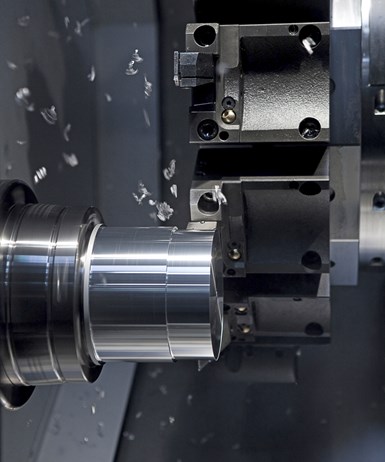Reduction of Lead in Aluminium Alloys
Eural has developed free-machining aluminum alloys, including lead-free and tin-free alloys.
There are several European directives and regulations (which are also implemented in many other countries), that are about to be modified to include important restrictions regarding lead content in aluminium alloys. This represents a big challenge for the global precision machining industry, which must find new alternative free-machining, lead-free alloys that will provide at least the same results in terms of productivity and efficiency.

The European Chemical Agency (ECHA), with regard to Registration, Evaluation, Authorisation and Restriction of Chemicals (REACH) requirements, put lead in the candidate list of substances of very high concern (SVHC), where there are metals with lead in concentration above 0.1% w/w. Until now, companies are only obliged to inform customers of the presence of lead in such metals, but there is a process of moving lead from the candidate list to the authorization list. There is an ongoing discussion, which should be completed in the next 12-24 months, in order to have lead in the authorization list by 2024. After that, companies will need special authorization from the ECHA in order to use lead above a certain quantity (most probably 0.1% w/w). It will be extremely difficult to obtain such authorization and it can be only be given once for a maximum extended time of two years. After 2026, it will not be permitted at all. The lead limit that the ECHA is evaluating in the discussion is anything between 0.1% and 0.3% w/w. But new scientific studies commissioned by the ECHA with regard to occupational exposure limits are suggesting that 0.1% is the maximum quantity tolerable for a healthy working environment.
The Restriction of Hazardous Substances (ROHS) directive 2011/64/EU has been updated by the European Union (EU) with the new directive 2018/740/EU, which limits the use of lead to a 0.1% w/w maximum beginning May 18, 2021. While ROHS applies only to electric, electronic and medical applications, nevertheless it is the first directive promulgated by the EU where its final document defines a maximum limit of 0.1% w/w.
The ELV directive 2000/53/EC has been updated by the EU with the new directive 2017/2096/EU, which limits the use of lead to 0.4% w/w in the exemption 2(c)(i), but this will be reviewed in the next few months. As REACH and ROHS are at 0,1% w/w, automotive manufacturers should probably align with that directive as it seems to just be a question of agreeing on a time frame for the lead phaseout.
There is no doubt that there is major concern about the presence of lead in metals. In spite of all the discussions and possible true or false expectations that any company might have, there are few basic fixed points — the ECHA has declared lead to be toxic and its level of toxicity has been equalized to mercury or hexavalent chromium. The EU defined a limit of 0,1% w/w; in this case, only to ROHS, but the indication is clear.
Lead is a problem, not just for aluminum materials but also for other metals such as brass, steel and stainless steel. In fact, this chemical element is typically added to free-machining alloys to improve machinability, which can cause a small chip to form. During the last 25 years, many lead-free, free-machining aluminum alloys have also been developed, using tin (Sn) as a chip breaking element. Unfortunately tin causes weakness and cracking of machined parts when it is subjected to stress, low or high temperatures (< 55°F or > 320°F); and, due to its brittle nature, it has the dangerous tendency to suddenly break without significant previous deformation (strain).
Eural Gnutti, based in northern Italy, is the largest extruder of aluminium alloys in Europe and specializes in the segment of cold-finish drawn bars. Eural has developed free-machining aluminum alloys, including lead-free and tin-free alloys. Its research has shown excellent results during the last three years. The 6026 lead-free, medium-strength alloy is deemed suitable for high-speed machining and can replace alloys that have poor machinability (6061, 6082) and those that contain lead (6262, 6064A, 6042) or tin (6020, 6040, 6262A, 6028).
The 2033 lead-free alloy has medium-high mechanical properties and a very high level of chip-forming performance. It was created to replace alloy 2011, which will not be ROHS compliant in 2021.
Eural’s 2077 lead-free alloy was registered Feb. 19, 2020. This aluminum alloy combines superior mechanical strength with high machinability and excellent chip-forming performance. The 2077 lead-free alloy has excellent opportunities to replace many hard and very hard alloys of the previous generation (such as 2024, 2014, 2014A, 7020) and, eventually, the 7075 alloy (in certain cases), with the goal to establish itself as an alternative to brass and steel bars. It has higher mechanical properties than 2024 and its chip forming is as good as 2011. With these qualities, it might be exactly what the aluminum market needs to maintain compliance.
About the Author
Andrea Narra is sales manager of Eural Usa Inc., Eural Gnutti’s Chicago-based company, which is located to better serve and support metal service centers, machine shops and OEMs in the United States. Contact: usa@eural.com or 312-888-0578.
Read Next
Emerging Leaders Nominations Now Open
Here’s your chance to highlight a young person in your manufacturing business who is on the path to be a future leader moving your company forward.
Read More5 Aspects of PMTS I Appreciate
The three-day edition of the 2025 Precision Machining Technology Show kicks off at the start of April. I’ll be there, and here are some reasons why.
Read MoreA Tooling Workshop Worth a Visit
Marubeni Citizen-Cincom’s tooling and accessory workshop offers a chance to learn more about ancillary devices that can boost machining efficiency and capability.
Read More













.jpg;maxWidth=300;quality=90)





